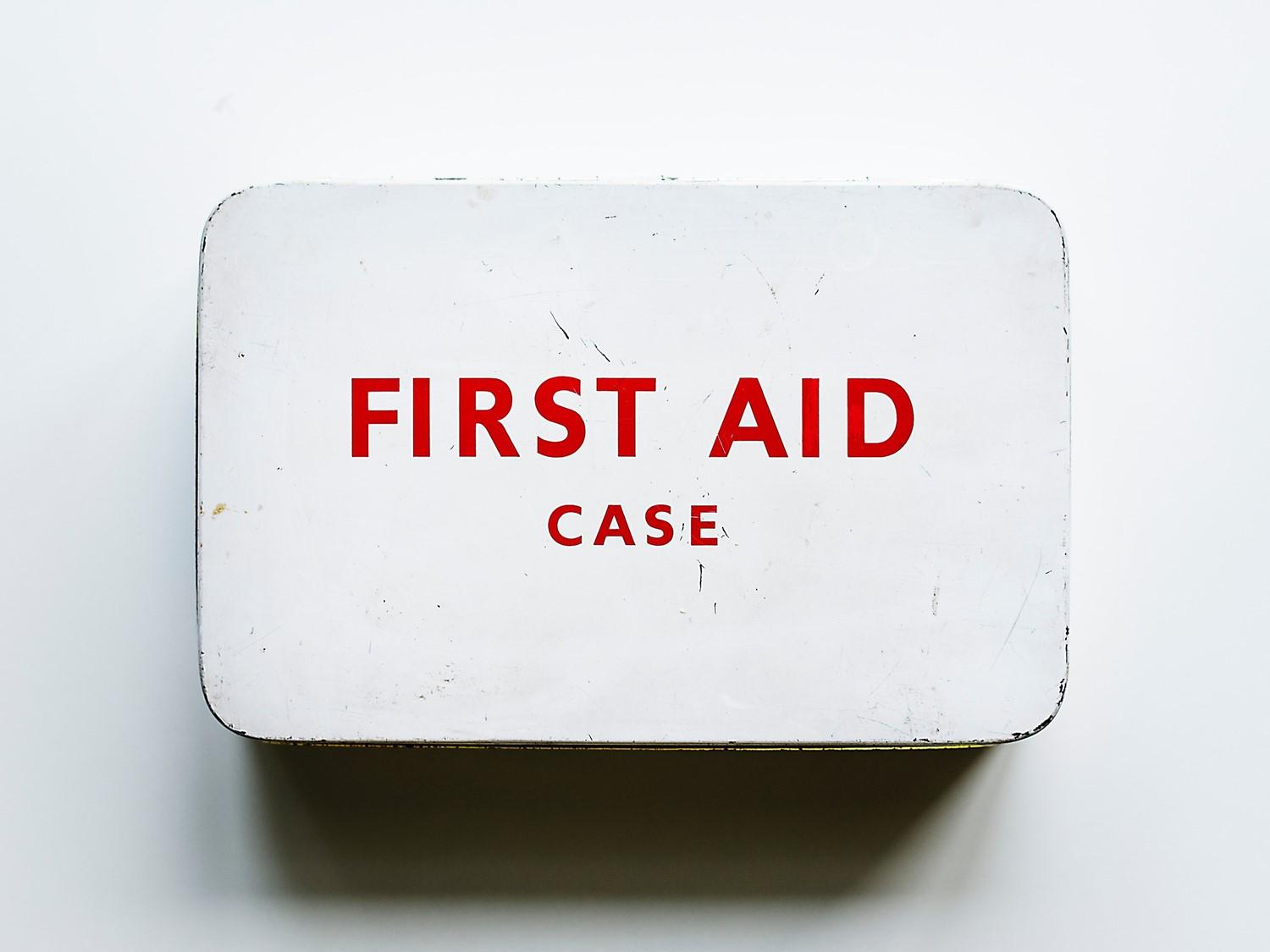
Health issues to be aware of when you fly
Peer reviewed by American Heart Association Authored by Michael MerschelOriginally published 30 Jun 2025
- DownloadDownload
- Share
Whether your holiday plans involve a trip to an exotic city or a sunny summer on a foreign beach - you'll probably be getting there by plane. And whilst airplanes are a generally safe way of travelling - there are health issues that you should consider before you board.
Here we look at what you can do to help make sure your flight is healthy and stress free.
In this article:
For the most part, planes are a great way to travel. "Overall, it's a very safe mode of transportation," says Dr. Leigh Speicher, an aerospace medicine specialist who is president of the Civil Aviation Medical Association.
But commercial air travel does come with some health baggage. Dr. Laurence Sperling, the Katz Professor in Preventive Cardiology at Emory University School of Medicine in Atlanta says issues can range from simple stress to: "Complex physiologic changes that can affect the heart, the blood vessels and the brain-heart axis."
Continue reading below
Should you beware of the air?
In the jet-travel song "Come Fly With Me," Frank Sinatra sang that once you're up there, where the air is rarefied, you can just glide, starry-eyed. But that rarefied air can pose a health challenge for some.
On commercial flights, cabin air is usually pressurised to the equivalent of around 6,000 to 8,000 feet in altitude, . That's means you are inhaling less oxygen than you might normally. That pressurised air can also be dry – around 5% to 25% relative humidity, according to a research review published in Clinical Cardiology.
Speicher, who started piloting planes as a teenager, says most healthy people will be fine breathing the cabin air. But the Centers for Disease Control and Prevention (CDC) says the lower pressure can worsen problems for people with anaemia, underlying lung issues, cerebrovascular disease such as stroke, or other conditions that require supplemental oxygen. The Clinical Cardiology review adds heart disease and heart failure, where the heart cannot pump efficiently.
The lower air pressure in the cabin also causes gas trapped inside the body to expand. This can affect you if you have had bypass surgery within the past 10 days, according to the Clinical Cardiology review.
Speicher says the expanding air inside the body also can lead to abdominal and sinus pain, or 'airplane ear' . The CDC says decongestants can help with ear and sinus symptoms. But because decongestants can raise blood pressure, they should be used for the shortest time possible or avoided altogether if you have severe or uncontrolled high blood pressure, according to guidelines from the American Heart Association and American College of Cardiology.
Health issues to be aware of when you fly
Flying dry
The low humidity inside a plane can lead to problems such as dry eye or a cough. To combat dehydration, Speicher recommends traveling with your own water bottle, which you can fill once you clear airport security. Be careful with caffeine and alcohol, she says, as they can be dehydrating.
The air aboard modern planes is filtered so is "cleaner than most of our homes and buildings that we're in," Speicher says. So when it comes to airborne viruses and bacteria, "it's not like you're being exposed to everyone in the whole plane."
But you can still be exposed to germs from the people around you, she says, and if you're sick, you can expose them as well.
Speicher says: "I'm not at the point where I would say, Everyone needs to wear a mask for every flight. But in case you end up next to somebody who is coughing and not wearing a mask themselves, it's lovely to have one on hand."
Continue reading below
Blood clot risks
The long periods of immobility that come with air travel can increase the risk for deep vein thrombosis (DVT) – clots that begin in large veins, often in a leg. If a clot travels to the lungs, it can be fatal.
Such clots are rare, but Speicher and Sperling both recommend using compression socks on longer flights.
Stay well-hydrated, Sperling says, and keep blood flowing by not crossing your legs and by flexing your leg muscles while seated, or "get up and walk in the aisle."
But don't loiter. "Turbulence can strike without warning," Speicher says. So when you're seated, buckle up, "it'll save you from injury," she says.
Dealing with stress
Air travel can be frustrating. "It's a very stressful time for some people," Speicher says - and that can affect mental health.
As well as your clothes she says you should, "pack your patience," she said. Try to be understanding of your fellow passengers, and listen to the instructions you're given. "The cabin crew and the pilots are trying to do their job. They're trying to get everyone there safely."
Speicher says if you a nervous fliyer you should do the things that help you stay calm in regular life - such as deep breathing, meditation or listening to music. She adds: "Travel with someone who helps you feel safe."
Also avoid alcohol, she says: "In addition to being dehydrating, it can compound all the issues going on, instead of calming things down."
Continue reading below
Pre-flight preparation
Sperling, who has been on the receiving end of several "Is there a doctor on board?" calls to help people when he's flown, emphasises the importance of checking with healthcare professionals to make sure you're ready to fly.
"The physical stress of air travel should not be underestimated," he said. "For many people, it can be the most significant stress test they've had in days, weeks, months, or that year." It takes effort to haul luggage through the airport or even just wait in line. "So it's not uncommon for people to unmask some underlying health conditions as they're navigating the stress of air travel."
If you're cleared to fly, Sperling says, make plans for keeping up with your regular medicines. Keep them in your carry-on luggage.
"It's helpful to have a list of your medicines, just to be able to share with whoever is trying to help," he said.
If you have a heart rhythm disorder you should carry a copy of a baseline electrocardiogram (ECG) reading – you can take a photo and store it on your phone. If you have an implanted device - such as a pacemaker or defibrillator - you should carry the device's card with you.
Check before you fly that you are up to date with any necessary vaccinations for the country you are visiting.
Keep in mind basic needs as well, Speicher says: "Have some snacks or food with you in case there are delays."
Don't skimp on sleep
Travel can interfere with sleep, which is essential for heart health.
Adjusting to a new time zone can be tricky when traveling. Speicher advises that you stay up a bit later or get exposure to mid-morning light to reset your body's internal clock depending if the time difference is forward or backwards.
"It's great to get sleep where you can," she says. But be careful with alcohol, which might make you sleepy but can interfere with staying asleep.
Sperling cautions against taking any type of sleep aid or anti-anxiety medicines that you don't take regularly. "Stick to your routine," he suggests. If your normal bedtime routine involves reading a book, try the same while you travel.
Have fun
"Air travel is important for people to see the people you love, your families, your friends, to experience new places and new beauty on this planet," Sperling says.
So while putting in the work required by flying, don't lose sight of its rewards.
Sperling says: "You should be aware of the risks - but you should be equally aware of the joy."
Speak to your doctor if you have any concerns about whether it's safe for you to fly - such as if you've had a recent heart attack or a stroke.
This article is published with kind permission of the American Heart Association, which has been striving to save and improve lives for more than 100 years.
Patient picks for Travel advice

Healthy living
LGBTQ+ travel: how to stay safe
Whether you're choosing your next holiday destination, planning a backpacking route, or attending Pride abroad this summer, being healthy, having fun and staying safe are top of the agenda. With help from LQBTQ+ advocate, YouTuber, and author Calum McSwiggan, we've assembled LGBTQ+ travel tips to help you protect yourself from harm in countries where discrimination persists.
by Amberley Davis

Travel and vaccinations
Health advice for travel abroad
Travelling abroad means encountering unfamiliar places and situations which may carry unexpected risks. Good planning and risk assessment allow us to anticipate and avoid many possible difficulties. This leaflet considers preparation for travel, aspects of personal safety, and health when travelling. It points to sources of information and advice to help in planning.
by Dr Toni Hazell, MRCGP
Article history
The information on this page is peer reviewed by qualified clinicians.
Next review due: 29 Jun 2028
30 Jun 2025 | Originally published
Authored by:
Michael Merschel
Peer reviewed by
American Heart Association

Ask, share, connect.
Browse discussions, ask questions, and share experiences across hundreds of health topics.

Feeling unwell?
Assess your symptoms online for free